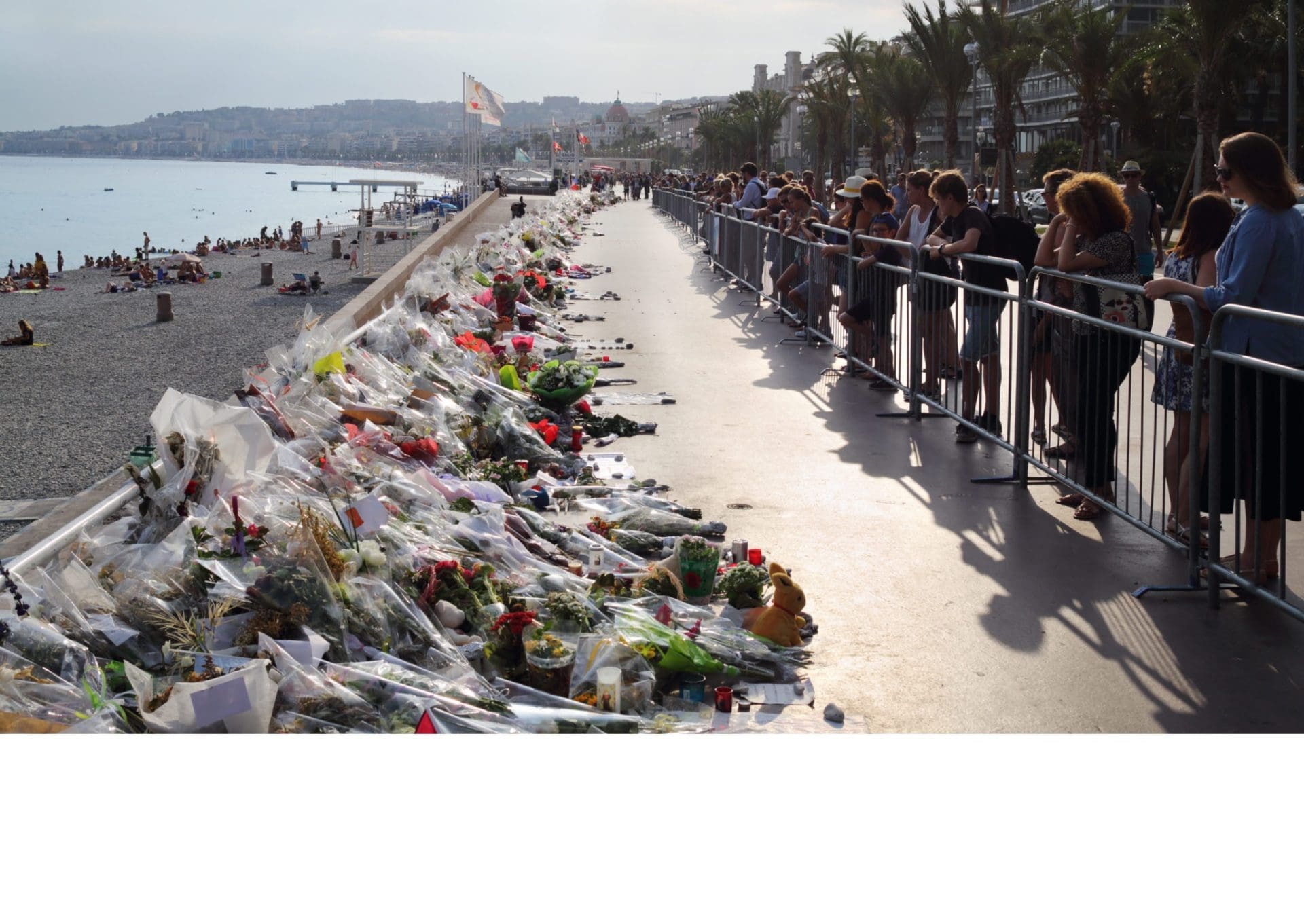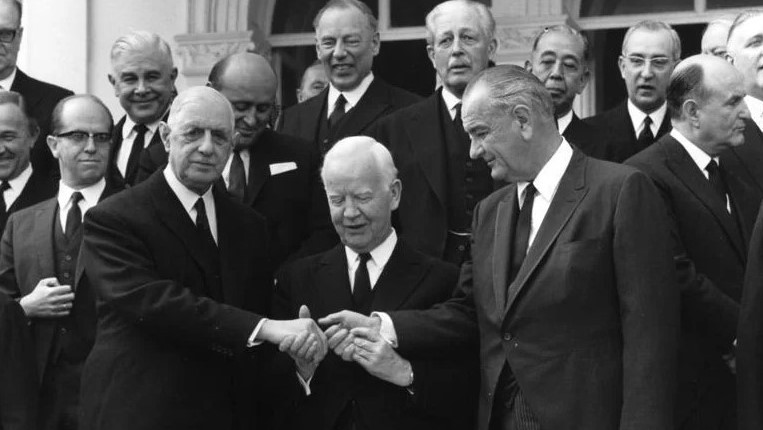Six years have passed since the tragic terrorist attack in Nice, France. On 14 July 2016, a Tunisian-born assailant drove a 19-ton truck into a crowd of people who were celebrating Bastille Day, killing 86 people and scarring hundreds for life. What can the EU do to prevent future incidents of jihadist terrorism?
The Attack in Nice
France’s Bastille Day, a celebration of France’s independence, is usually a festive and cheerful event, with alluring military parades and spectacular fireworks. All that changed in an instant when six years ago the 14th of July became a bloody, terrifying day for many, as a French-Tunisian extremist drove a truck into the celebrating crowd, killing almost 100 people on the spot, injuring and scarring many others for life. Unfortunately, it was not the first act of terrorism France experienced in those years, as Paris had been struck by ISIS-claimed terror attacks in the November of 2015 as well.
Though many Muslims claim that there is nothing inherently Islamic in these movements, the two are generally perceived as closely connected
Jihadism is a term used to describe militant Islamic movements that are considered to pose an existential threat to the West. Though many Muslims claim that there is nothing inherently Islamic in these movements, the two are generally perceived as closely connected. The term was adopted after the 9/11 attacks, and since then, it has been applied to Islamic extremists and terrorists alike, whose ideologies are based on the Islamic notion of Jihad. The driver who struck the crowd attending the fireworks, believed to have been indoctrinated by jihadist propaganda, was shot dead by the police after his rampage. He was ‘totally unknown’ to security services, the authorities claimed, even though he was in possession of an automatic pistol, replica assault rifles and ammunition.
It has since come to light that he did have a documented history of violence and mental instability. He was described by neighbours as a ‘violent loner who liked to drink’. In contravention of Islam’s rules, he took drugs, had a ‘wild’ sex life, but at the same timehad a strong interest in radical Islamic teachings. His Internet history showed recent searches for jihadist propaganda texts and investigators found photos of dead bodies linked to radical Islamism on his computer.
His intentions were clear. Prior to the attack, he researched the Bastille Day celebrations in Nice and searched the web for videos of ‘terrible’ and ‘fatal’ traffic accidents. He also read up on previous ISIS attacks, such as the Orlando shooting or the Magnaville stabbing.
Is Migration to Blame?
With the 2015 refugee crisis came an uptick in Jihadist terrorism in Europe.
According to a report from the Danish Institute for International Studies, in the period between January 2016 and April 2017, most terrorist attacks were carried out by extremists that were EU citizens, while ‘only’ four asylum seekers and no actual refugees were involved in terrorist incidents. Those who were considered refugees and committed terrorist acts were actually documented European foreign fighters – Europeans who had been radicalized and joined ISIS–, using the migration routes to reenter Europe undetected to carry out these acts.
This demonstrates that regardless of the fact that refugees should not be demonized, controlling the flow of migration and the screening of those coming in is crucial. As the report states, ‘Schengen border policies are pivotal to addressing the challenges arising from the intersection of migration with terrorism.’
Unfortunately, this is no easy task, due to poor data and information sharing in the EU and the lack of operational capabilities.
In order to prevent future terrorist attacks, Europe must focus on cooperation and learn from the past when defending its borders. There should be an increased focus on preventing terrorism through efficient border management.
The creation of a new border patrol force has been decided
An example of such efficient border control is Hungary’s handling of the 2015 migration crisis. Refugees were still accepted through official avenues and those who tried to get in illegally were detained and entered into the system. Not only was the border control efficient, it remains so until this day. As tensions mount at our borders yet again, the creation of a new border patrol force has been decided that will be capable of responding to the attempts to enter the country illegally, while alleviating the burden on regular police and military personnel.
Arrests for Jihadist-terrorist attacks saw a tremendous increase in the years following the refugee crisis, whereas terrorist attacks have been decreasing ever since 2018. New EU legislations aim to decrease this number further, with the Council adopting a new regulation that bans the dissemination of terrorist content, in order to prevent radicalization.
New information sharing frameworks have also been adopted in the years following the refugee crisis to help national police forces, border guards and Europol to identify potential terrorists and share alerts about wanted people.
Although these improvements offer little solace to those who were personally affected by earlier attacks, as hundreds of the surviving victims are suffering from permanent physical and mental health issues to this day, they are extraordinarily important in the fight against jihadist terrorism in Europe.








